Getting to know you, getting to know all about you … getting to like you … hoping ….
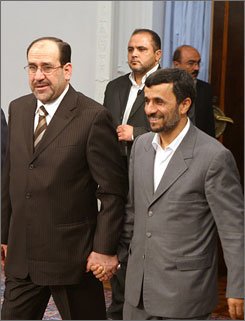
Iranian President Mahmoud Ahmadinejad, right, walks hand in hand with visiting Iraqi Prime Minister Nouri al-Maliki during their meeting in Tehran, Wednesday. Maliki met Iranian leaders for talks aimed at winning Tehran’s unequivocal support for restoring security to his war-torn country.
Iran promises security help for Iraq
TEHRAN, Iran – Iranian officials told Iraqi Prime Minister Nouri al-Maliki on Thursday that only a U.S. pullout would bring peace to his nation and claimed the Tehran government was doing its best to help stabilize neighboring Iraq.
Al-Maliki said decisions about an American pullout were between Baghdad and Washington. This issue “belongs to the Iraqis only and it is related to the readiness of the Iraqi armed forces and their ability to take over security responsibilities,” he told The Associated Press during the visit.
Al-Maliki has long played a delicate balancing act in the bitter rivalry between his two allies, putting off Iranian calls for an American pullout while balking at U.S. pressure to take a tougher line against Tehran.
President Bush said he hoped al-Maliki’s message to Tehran would be the same as the U.S. message — that Iran should halt the export of sophisticated explosive devices used to attack U.S. troops in Iraq or “there will be consequences.”
Al-Maliki did not say whether he pressed Iran on the U.S. accusations, and the first two days of his three-day trip aimed at enlisting Iranian help in pacifying Iraq appeared to bring no concessions from America’s greatest rival in the region.
Instead, Iranian officials used the spotlight to decry American involvement in Iraq, and promote their increasingly close ties with al-Maliki’s government.
Meeting with al-Maliki, a fellow Shiite, in the sect’s holy city of Mashhad, Iran’s supreme leader Ayatollah Ali Khamenei said that “occupation forces are responsible for the problems in all aspects of life” in Iraq. A staunch opponent of the U.S., Khamenei predicted that the “U.S. policy toward Iraq will definitely fail.”
Al-Maliki also had a warm meeting Wednesday evening with Iranian President Mahmoud Ahmadinejad, walking hand-in-hand with him into an ornate meeting room.
Iranian support boosts al-Maliki amid Iraq’s political turmoil — particularly rumors of maneuvers among his fellow Shiite politicians to remove him. But the close ties with Tehran could further disillusion Sunni Arabs, who in the past weeks have pulled out or boycotted his government, damaging attempts at reconciliation among Iraq’s sects.
Khamenei said Iranian officials want Iraq’s government “to be for all Iraqi sects: Kurds, Sunni and Shiite.”
Iraqi Foreign Minister Hoshyar Zebari said Ahmadinejad had expressed support for continuing talks between Iranian and American officials in Baghdad about stabilizing Iraq.
“We understood from the (Iranian) president that there is a real desire to continue this dialogue and especially on the borders issue,” Zebari said, referring to cross-border movement of militants.
But Iranian officials continued to make clear in the talks that U.S. forces should go, Iranian Foreign Minister Manouchehr Mottaki said.
“The United States won’t get out of the complex situation it has created for itself in Iraq unless it corrects its policies,” Mottaki said, according to IRNA, Iran’s official news agency. He said that when Iraqi forces run security instead of the Americans, “one can be hopeful that effective steps will be taken and that one can be hopeful of talks in the future.”
Iraqi and Iranian officials also sought to increase the already surging economic ties between the two oil-rich countries.
Under some of the deals being worked on, Iran would build a power station in the Shiite Sadr City enclave and supply Iraq directly with electricity. Iran would also provide 400,000 tons of kerosene and liquid gas this year.
Sadr City has been the scene of fierce fighting between the U.S. and Shiite militants, most recently on Wednesday when U.S. aircraft and soldiers attacked Shiite militia bomb makers accused of links to Iran. The U.S. military said 32 suspected militants were killed and 12 were captured.
Iraq has only partially backed the U.S. claims that Tehran is behind attacks on U.S. troops, saying it has not ruled out an Iranian role. Iran has denied the charges, most recently on Thursday in Damascus, Syria, at a gathering of officials from Iraq and its neighbors as well as the United States and other countries.
There was little word on the pledges al-Maliki obtained during his Iraq trip, but according to an Iraqi official traveling with him, Iran promised to help convince its ally Syria to take a more “positive role” in keeping Iraq’s security. The official spoke on condition of anonymity as he was not authorized to talk to media.
Iraq and the U.S. have accused Syria of allowing Sunni insurgents to cross its border into Iraq.

Wild Thing’s comment……..
Maliki is a short timer. He is furious with General Petraeus, according to past reports of his tantrums about General Petraeus. meanwhile the General just ignores his fatazz and keeps on kicking ass.
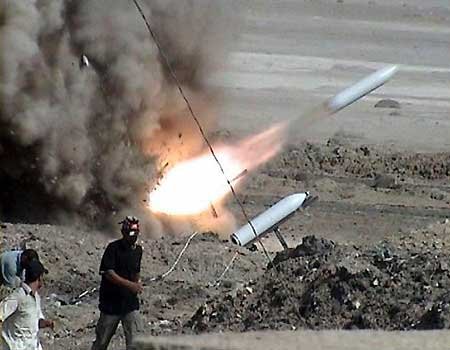
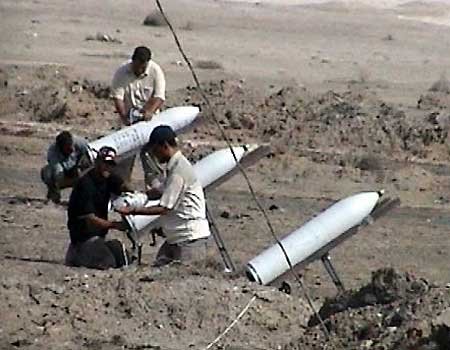


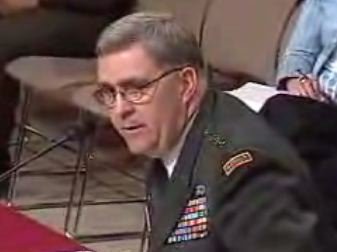

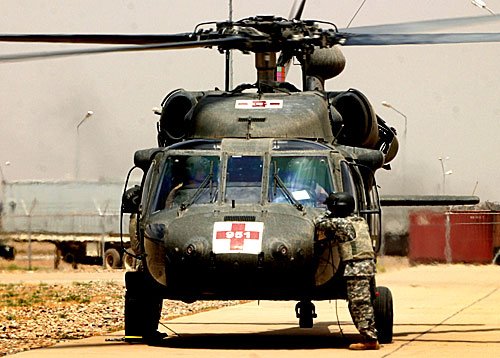
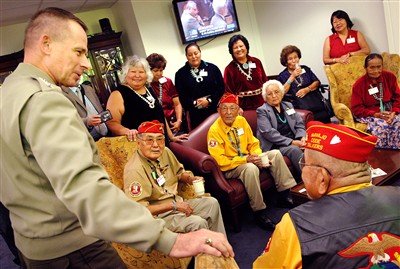
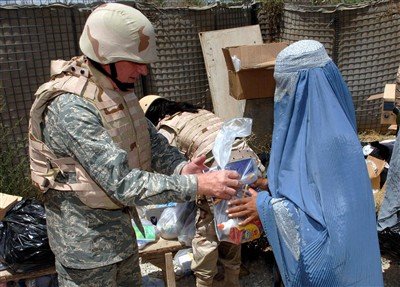
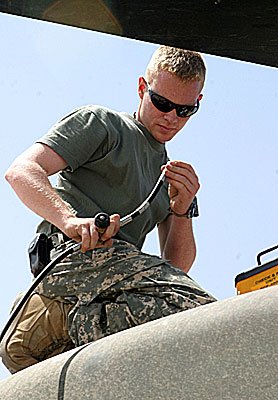
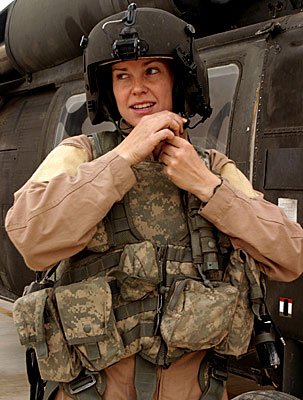







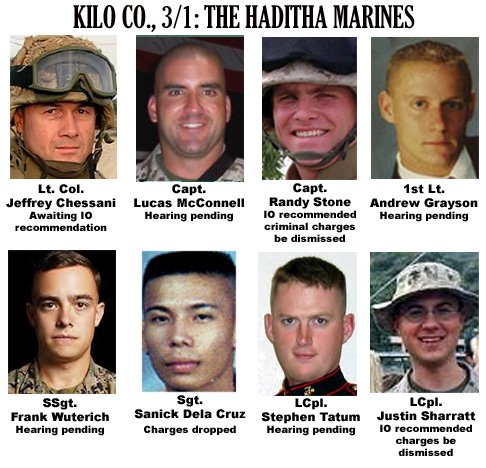
Recent Comments